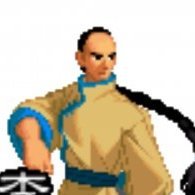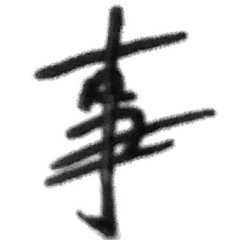Featured
Popular Content
Showing content with the highest reputation since 01/25/25 in all areas
-
8 points
-
Here are a few of the books I read over the last year: 黑貓中隊:七萬呎飛行紀事 by 沈麗文 This was written by a daughter of one of the Black Cat Squadron pilots who flew the U-2 under Project Razor back in the 1960s and 70s. Being a daughter of one of the pilots gave her insider access to survivors, and she interviewed about 10 of them. Much of the broad information in this book is now available in English, and there are some Taiwanese TV documentaries on Youtube about Project Razor. Having published the book back in 2010, she gets some details wrong. For example, she claims that the ROCAF was the only foreign air force to fly the U-2 operationally over communist block countries. That has since been shown to be incorrect by journalists in the UK who’ve used FOI requests to reveal that at least one RAF pilot took the Dragon Lady over the USSR from Pakistan in December 1959. This book is nevertheless worth the read. She captures the human element, and especially the sacrifices these guys made. The ROCAF Black Cats flew a lot of missions over the mainland, and then quite a few sigint missions off the coast which the PLAAF nonetheless tried to shoot down. The ROCAF crews kept doing overflights even though the PLAAF acquired enough SA-2s to down 5 airframes. She tells the story of 張立義, one of the shootdown survivors who spent 17 years on the mainland before being allowed to leave. He kept his vows to his wife, who had in fact assumed he was dead. She had remarried with an ROC army officer, but under the condition that their marriage would end if her presumed KIA husband ever turned up. Zhang and his wife eventually remarried. If you’re into aviation or cold war snooping stories, then this would be a good read. One gets the sense that the Black Cats really were among the best in the world at what they did, and that they had some heavy brass ones. The author is also fair and respectful to the PLAAF missile battery crews and interceptors who eventually drove the U-2s offshore. The book should be plenty readable to anybody with HSK 6ish reading ability. 生育制度 by 費孝通 This is by the “Father of Chinese Anthropology/Sociology” who wrote “From the Soil”. From the Soil is on the mainland senior secondary Chinese syllabus, and I thought it was a good read, so I gave 生育制度 a go. The title has been translated as “Reproduction System” or “Fertility System” in English, but it seems there is no published translation in English of the whole book. I think Reproduction System has a bit less literary Chinese in it than From the Soil, so to me it was a slightly easier read, although much longer. The original version was written in 1946, but he may have revised it. Fei was really well-read by any standard of that time, and he refers to quite a lot of canonical English-language anthropology and sociology. Fei writes from a few different angles to theorize about social and cultural elements that form a society or culture’s overall system of reproduction. He looks at family structures, marriage systems, the place of sex in marriage, father-son and mother-son relationships, and a lot more. Given the time he wrote the book, the examples he refers to will seem traditional to the modern reader. He also draws some observations that might rub some modern readers the wrong way – i.e., “The fundamental purpose of marriage is to provide a safe environment for the nurturing of children.” I’d nevertheless say Fei was an enlightened realist who drew a very clear line in his head between any moral judgment on one hand, and objective observation of the way things were or will be on the other. He gives interesting examples and explanations of how pretty much all aspects of a society’s reproductive system are culturally constructed (or man-made [人為] to be more faithful to his phrasing) rather than biologically determined. I’m not a demographer/sociologist/anthropologist and I have no idea how well this book would stand up for contemporary students of those disciplines. But I did find this book interesting, and I’d recommend it to anybody who would like to read a non-fiction book by a very well-informed 20th century Chinese academic. Again, I think this book should be within the range of anybody with solid HSK 6ish reading ability. 萬曆十五年 by 黃仁宇 This is the self-translated version of Ray Huang’s 1587: A Year of No Significance. It is very popular in China, and my students at the university where I teach strongly recommended it. I had high hopes for this book. It looked kind of hard for me, so I got a .txt file for it and extracted out what looked to be the harder vocabulary (for me at least) using Chinese Text Analyser. I did a bit of pre-studying of that vocab. I slogged through about 10 pages and then chucked it in. Too hard for me. The density of unknown words was just too high. I might come back to this book later, but not soon. This book might be a lot more readable by those who have studied some literary Chinese. 明朝那些事兒 by 當年明月 After I told one of my students that I found 萬曆十五年 too hard, she recommended this series of 9 books. I read the first one. I’d say the good thing about this series is that it exposes one to a lot of period vocabulary, but not at such a density that the book becomes a real chore to read. The book is in fact written in a really colloquial style. I read history for my first degree, and while I don’t mind popular history, these books are just too much in the style of a popular serialized internet novel for my liking. I learned a good bit of vocabulary, and a bit about the start of the Ming Dynasty, but I won’t be in a rush to read the second book in the series. I’d say these books are totally readable by anybody with HSK 6ish reading ability. 戰爭和人 by 王火 I mentioned to a student that I really liked 平凡的世界, and that I’d really like to read some good quality war fiction or war biography type stuff. He recommended this book, and said he thought the difficulty should be comparable to 平凡的世界. The book was the 4th winner of the Mao Dun literary prize. That didn’t really matter to me as I have read a couple of other winners of that prize that were pretty underwhelming. But my student liked it, so I’ve started reading it. The book is in 3 volumes of about 700 pages each, and it tells the story of a high-level KMT member and his son before, during and after WWII. I have only gotten about 50 pages in. So far it is readable and interesting, and I’d say my student judged it correctly as being of similar difficulty to 平凡的世界. I’ll write more on this book if and when I finish the first volume.6 points
-
I don't understand why 黄有光 thinks that spending more time on news broadcasts will enable him/her to better understand other kinds of speech. Colloquial speech has very little in common with newscasts! My husband has been in the US for 40 years and he still has to turn to me for explanations sometimes. Most recently, a handyman looking at another handyman's work said the latter was "really sketchy." You would never hear that word in a newscast! My husband had not a clue what that meant. Another time he showed me a written political editorial that made me just shake my head at trying to explain it, because it was full of sarcastic sentences that depended on the reader having read, let's say, The Odyssey, The Bible, The Lord of the Rings and more. Again, newscasts are never that convoluted. My take is that if you want to better understand colloquial speech, listen to more colloquial speech. Etc.4 points
-
I saw a review of a book called Immersion: A Linguist's Memoir, and I thought some forum members might find it interesting. It seems to have a lot to do with the profession of being a translator; with learning little-spoken languages, and with personal lessons learned by learning other languages. https://hippocampusmagazine.com/2025/01/review-immersion-a-linguist-s-memoir-by-linda-murphy-marshall/ I have a to-read list a mile long, so if you do read it, please report back and let us know what you think!4 points
-
I think this is too personal for someone who doesn't know you to give you a good answer. It depends on so many factors. For example, how exactly are you spending your 30-60 minutes per day? How good was your Chinese before? The more you know, the more there is to forget (especially vocabulary). Also, unless you are in China, you should have realistic expectations. I lived in China for 10 years and reached an advanced level. I have now been learning Japanese (albeit not intensively) for a couple of years, and my progress is significantly slower than it was for Chinese, mainly because I am just not in an environment conducive to learning Japanese.3 points
-
This is basically the story of my life these days. I'm approaching 10 years of seriously studying Chinese, and I'm feeling my skills mature in really encouraging ways. I can watch a YouTube video where a Chinese speaker speaks at an extremely fast pace about geopolitics or philosophy or neuroscience, and I can understand it comfortably enough to enjoy it. But then there's another video where a person is talking about a day playing with his dog in the park (or some simple thing like that), and it requires so much more effort to understand, for some reason. I've observed, also, that female speakers are generally easier for me to understand than male ones. I'm really bad at understanding dialogue in dramas, cartoons, etc. I'm way better at academic speech, news broadcasts, and other more formal settings. As a native English speaker, I also find it notoriously difficult (sometimes) to understand dialogue in English movies. There are actually a lot of online discussions about that, like this one: https://www.slashfilm.com/673162/heres-why-movie-dialogue-has-gotten-more-difficult-to-understand-and-three-ways-to-fix-it/3 points
-
Dou Bao is a really good AI resource, especially to practice listening and speaking. It's completely free. It's the best Chinese AI voice I've heard yet and you can choose for scores of accents, plus male/female. You can hold the button and talk, listen to the answer and think about your reply and then press the button again. Or, you can us the phone call function and it's like you're talking to someone live and have to think quickly. With the question function, you can ask it about something and either read or listen to the answer and it almost always sends you a related Douyin video. I've asked it to do role plays with me and it works great. Their text to speech is excellent and fast as well, it gets everything I say seamlessly. Maybe it's answers could be too wordy for low levels, but it will also dumb it down if you ask it. I Can't think of anything negative to say about it. Highly recommend giving it a try.3 points
-
I have this all the time. Some people (video or real life) I understand easily, some I struggle with. I was sitting in the sauna last night and talking to two guys, the first one was from Fujian and the second one was from somewhere in the north. I had no problem at all with the second guy, partly because his accent was very standard, but also because I think he knew to grade his language a little in terms of speed and vocabulary. The first guy was full speed ahead, accent that I don't hear much and throwing in words or sayings that I don't know. I feel like Chinese use A LOT of sayings - and when they talk to a laowai, it's like they always want to "teach" you something, so they tell you these idioms or sayings. Your first link, as Jan pointed out, is Advanced "LEARNER" , but not really advanced, I can also follow that very easily. The animated thing I watched a minute of, I could follow it ok/less easily, their voices are cartoon voices and that's something I rarely watch. Also probably very colloquial. The News clip I could follow and get the gist, but there are probably many new words to me if I watched the whole thing. As you probably know, in real life, NOBODY is talking like the people in ANY of those videos. For me, with a vocab of around 9k, I struggle most with people in real life who just go full speed ahead, and talk to me like I'm not a learner. So, I'm trying to watch stuff that helps me practice that. Currently, I'm watching this drama series: https://www.youtube.com/watch?v=QRvCYFlUQyE&list=PLkvG4EWPDB0mcU_bbFU3dZsAp7xALlGFM&index=25 Sometimes I get everything no problem, other times I get 30%, there are times when I can catch almost nothing. But these people speak similarly to the people I encounter in real life, so I'm pad my study with this kind of thing at the moment. I think it boils down to what @Jan Finster said: familiarity with topic vocab, accent, speed, colloquial-ness, idioms/sayings, etc.3 points
-
These are my favourites 大明王朝1566 / Ming Dynasty 1566 With clear Chinese subtitles: https://www.youtube.com/watch?v=awHPt_9CSOQ Very good English subs: https://www.youtube.com/playlist?list=PLyED3III7lHMXbM4pd-YX6VW1JBkm4e0V Notes and commentaries in Vick's blog: Chinese Shows Translated https://dinnermonologues.wordpress.com/category/chinese-shows-translated/ming-dynasty-1566/?order=asc "Towards the Republic" (走向共和) https://www.youtube.com/playlist?list=PLyED3III7lHOzIHI2uLjXoX1ex_7e2l6f Chinese and English subs Additional commentary: https://dinnermonologues.wordpress.com/category/chinese-shows-translated/towards-the-republic/?order=asc Netflix has "King's War" (2012, 80 episodes) on the Chu-Han Contention, this series follows Sima Qian almost textually https://www.netflix.com/search?q=King's war&jbv=80160391 https://en.wikipedia.org/wiki/King's_War My all time fav: Three Kingdoms (2010) with Jiang Hu English subs https://www.youtube.com/watch?v=gdzVMyamsD8&list=PL6FCjiISUl3jJYFrcZOQNltf4RxZABcHG I just noticed you posted on this subject before and recommended Three Kingdoms 2010 too I think the older series (?2008) may follow the novel more closely, but I much prefer the acting in the 2010 series.3 points
-
The Economist has a fascinating article about the English and Chinese wording of official communiques and the serious implications of nuances in translation: https://www.economist.com/china/2025/01/28/america-and-china-are-talking-but-much-gets-lost-in-translation There may be a paywall on this article. I have a subscription so I'm not sure.3 points
-
3 points
-
What an honor to have the Pleco creator himself chime in! 😂😆 That's good to know! I looked up online and indeed, there's a Wo Hui Mandarin F1 pen.... which is nowhere to be found in China . Going on a small tangent, I still don't really get where they're trying to go with Wo Hui Mandarin. They're clearly trying to build a comprehensive official platform for Chinese learning, but nothing ever seems to come out of it 🫠. The HSKMock website has some unfinished and not-that-great testing and practice features that are clearly meant to connect in interact with something bigger, but it's just not there. There's also no info on them besides them being a Singaporean based company and apparently they now also design the questions for the HSK? It's not a big deal, I'm just nosy hahaha Oh yeah, and the 有道A6 Pro arrived! So far, it's actually been working pretty damn great! I don't think I've unlocked it's full potential yet, it seems like there's some stuff to download or configure on the app, but I'm not sure yet how to do it. Nevertheless, it seems to fullfill my needs quite well: it's super fast to read and it pops up a nifty dictionary definition along with the pronunciation being spoken out loud (and including sample sentences from 有道 too, which is a good addition). You can also scan full sentences and it'll translate everything at once, then you can click on individual words to look up their definition if you want. You can bookmark words and sentences and they'll show up on your phone (which also keeps an history of what you scanned). There's also an AI that does something but it seems to be focused towards english-learning (and they're a bit stupid too, sorry AI) Overall quite a great little device! Definitely recommend if there's anyone like me that finds phones troublesome in some situations, it'll definitely change how I do sentence mining (hope to see pleco on it one day too 😝). Now I'm thinking I should've had this idea sooner hahahaha 词典笔1.mp4 词典笔2.mp43 points
-
January 2025 In a Nutshell Zero progress between 8th-16th January. Progress has otherwise been consistent, albeit not as much as hoped. I found learning vocabulary from textbooks to be more boring (and to stick poorly) compared to learning vocabulary from videos, so I've made a hard pivot. Since the last time, I've: Blocked English-language videos. Netflix is completely blocked. YouTube is blocked with the exception of a string of Chinese-language channels, and three English-language channels that relate to my work. Switched to vocabulary mining from videos. Again, Migaku #1. It's helped a lot in learning more idiomatic language naturally (数不胜数 has been a favourite find), helping it stick, and making the process actually enjoyable. Come up with a handy method. I find a short video on YouTube (8-10 minutes long), and learn every useful word from it over however many days it takes (via Migaku). Once learned, I then download the MP3 and put that into the Music folder in my phone/laptop (which itself is comprised solely of Chinese recordings). I then listen throughout the day/when on walks to maintain immersion/practice. I'm recording every video watched via Excel. Headlines: Time Spent Table form's likely easier than screenshots, so according to Toggl: Media Immersion List 吹牛还是真牛?苹果M1全网最硬核评测 // On pause. Very long. Tech-heavy vocabulary is useful though. 翟山鹰:中国极差的工业制造能力丨为什么说面临战争的时候 中国的工业制造能力很拉胯 // On pause. Lots of focus on economics and (specifically) the auto industry. 如何克服完美主义? // Abandoned at 80%. Subtitles start mismatching at the 80% mark, making Migaku card creation impossible as it can't scrape the audio. I can understand a strong 95+% of this regardless. 我从那些“疯子”身上汲取到的生命力💪|法罗群岛🇫🇴 // 100% complete. 30岁北欧留学8个月后,还值得吗? // 100% complete. 放弃深圳工作到瑞典留学,一个月的花销有多少 // 100% complete. The Bad News Responsibilities (tm) are going to get in the way for the next ~1.5 months, which are going to heavily impact how much time I can actively invest into vocabulary learning. As such, I'm going to knock down the total number of new words expected/day to just 5. This is feasible under new constraints, and ensures slow progress rather than no progress. Anki Stats If you look really closely, you can see when Responsibilities(tm) kicked in. Question: Was this Card Difficulty graph always a thing? It's made identifying leeches a doddle.3 points
-
B-roll: Not sure which is most surprising: Not a scratch or dent on the car, no flat tire, not one traffic jam(well until arriving back in beijing) , zero la duzis', nothing forgotten in a hotel, still married, no traffic violations, only saw one accident on the road the whole way (outside of golmud) . Did have the worst order of baozis in the history of baozis, however in Chaka). It was a truly fantastic trip, especially since we had the total freedom of driving and a full month to do it.3 points
-
I feel like I've finally found a good way of maintaining balance with reading English books and Chinese books. I have a new rule for myself which is I read one book of each language at the same time, but only one can be "long". I found that the areas where I went through a drought previously were if I reached a bit of a slog in both languages, and hopefully having something fresh to read most of the time, will reduce the number of days where I don't read anything at all. If anyone has any recommendations I'm happy to take more suggestions of shorter books (<100k chars) Since the start of the year, I finished the long web novel 《紫川》(~2.5m chars) and a shorter work of wuxia by 龙乘风 who is considered a 古龙 imitator while also reading 6 books in English. I really enjoyed the ending of 紫川, even though there were a lot of threads introduced that were never wrapped up and I definitely want to read another long Chinese story at some point in the future. I was not a fan of the other book, 雪刀浪子. It was originally published in a magazine, and while I have read other works that were published periodically, this managed to capture all the worst elements such as there being 180 degree twists every few pages and random characters being introduced and being told that they're important when I knew they wouldn't be.2 points
-
Just recently, a Chinese person in mainland China played me a clip of Adele speaking in a street interview - incomprehensible to the Chinese person. Fast speech, strong London accent, missed some words and she said “I look like my uncle at a wedding” implying her dress sense for a certain occasion wasn’t on par. You need experience and sometimes local culture to understand. Just like trying to understand Gen Z. If a place like UK can have so many accents over only a short distances, then China is going to have huge differences2 points
-
2 points
-
if you can deal with gore, 《漂白》is turning out to be a great watch, I'm currently half way through - just don't watch it while you're eating2 points
-
Thanks for these! The Ningxia night market was lots of fun when I was there, some years ago. In addition to all the great eats, a small (6 or 8 people) itinerant opera troupe was performing a mix of western and eastern songs one evening. They would move tthrough different parts of the big square and pass the hat periodically. You just stood around them a while listening, eating your shao kao 烧烤 skewers, chicken wings 鸡翅 or corn-on-the-cob, then moved on when you felt like it. Warm spring evening. Stars overhead. Later, back in Kunming, I had an interesting private language teacher who was an out-of-work opera singer from Shanxi. She told me about growing up in a family of small-time performers who sometimes (between larger gigs) made the rounds of night markets like that, mostly in small and medium-sized towns. She said Ningxia, though larger, was always one of their "best" stops. She said people there were especially generous.2 points
-
I tried the Chatgpt advanced voice mode and didn't really care for it. It was a few months ago, so the details are a little foggy, but if I remember correctly there was only the choice of one male voice. That male voice to me sounded like an American cool-jazz DJ speaking Chinese. I found the conversations with it very lame and hard to get it to really converse in any depth. It also didn't type any of the conversation out, his side or mine. I possibly missed something, but I wasn't impressed at all. Yesterday I tried the Chinese app 豆包 that a friend of mine suggested. To me 豆包 seemed much better for practicing conversation with AI. The Chinese voice is the best I've heard from any AI yet. There are different function areas in the app and at least some places you can choose from male/female and regional accents in the voice. It also types out what is said. When I speak to the microphone, it's speech to text is flawless and very smooth. In the standard mode(not 聊天), it's great practice to ask it a question about a random topic and listen to it's detailed answer and then read the answer. I love how it provided me with a related short video to watch. It's also FREE. For sure worth a play around. Don't know if it can be downloaded overseas, I'm using it in China. As a side note, and this could largely be in my imagination, but it does seem like 豆包 and DeepSeek's Chinese is overall just a wee bit more authentic. But then I can't judge that and that's not too important to me.2 points
-
Day 24 and 25: Yinchuan Stayed at nice little budget hotel which had nice food we enjoyed dinner out in front of the hotel and the weather was ideal. Next day we visited a Ningxia winery called Legacy Peak - nice wine and the boss was very friendly and told us all about the winery over a tasting, there was a fee for the tasting, wasn't too expensive, I drank a lot of wine. You could also see ancient tombs right in his winery. Highly recommend LP if you're looking for a winery to visit in Yinchuan - call them first. Afterwards we went to the YC night market. Day 26: Yinchuan to Yulin , Shaanxi The next day before leaving YC , we had an excellent lunch that was recommended by the winery boss. I cannot remember the name of it, but it was kind of a hotpot with thick tomato stock soup, really tasty. Yulin was also just kind of a stopover, as we were needing to get back to BJ quickly. The hotel was really fantastic and pretty luxurious and only like 50usd a night, included a free ticket to the spa, which had 汗蒸, sauna and onsen.2 points
-
I'm proud to say that I've officially passed the HSK5! I'm quite surprised with my scores, I didn't expected to score so high considering 1 month ago I thought the HSK5 was an impossible barrier to cross. The writing score sucked, but that was expected, there was 1 word on the 5 words exercise that I forgot how to write even though I knew what it was (勇敢 - never forgetting it again!). Spent most of my time of the writing section panicking and bruteforcing the poor pinyin keyboard 😂 so my writing was all over the place hahaha. Can't see the full test stats since I don't think the result is officially out yet, I just accidentally bumped into this on the website Pretty happy with it though! I did around 30 days of exam prep along with some INSANE Anki cramming, I was adding 2 new chapters of the HSK5 textbook to anki every day. Contrary to what I see online, I also think that prepping for the HSK definitely helped my Chinese, I don't think the reading section was too different from a lot of stuff I deal with everyday. It helped me bridge a lot of gaps in my knowledge I didn't knew I had and solidify some other concepts that I kinda grasped but weren't really solid before. I expected to score high in 阅读, but 80 in 听力 was a good surprise too!2 points
-
So we created a Chinese Grammar Bank from complete beginner to HSK 5 level. I think HSK 4 and 5 need some more points though. Any suggestions for additional points that should be covered, especially at the higher levels (but lower levels too if there are suggestions)? How to improve structure and content?1 point
-
Here the Japanese transcript: 妹は 私 の友達五人と一緒に日本食 レストランで寿司 とアイスクリームを食べました。 Now Google can translate it for you 😉1 point
-
For discussion of recent-ish news that's relatively clear and enunciated while still being normal people talking, I like 新聞酸菜館 (mainland) and 全球串連早安新聞 (Taiwan).1 point
-
Yearly check-in. What a great travesty that HSK Pro is still disappeared :(, and when the world needed him most. His near vanquishing of the Chinese Character Problem once and for all shall be told in legends and lamented by future generations. @Matthias That sounds cool. Ya the way I learned the Matthews characters was by reading the book then using this simple Anki deck here: https://ankiweb.net/shared/info/128251318 it just has the character, pinyin, definition/keyword, number, and chapter for each entry in Matthews. I'm not super familiar with the Marilyn Method, but I'll check it out. I think Mandarin Blueprint's Hanzi Movie Method is based on it. @dawidpacha Honestly, ya I'd be interested in working on a community project like that. Do you have discord? my handle is @pannakooko PS: @Matthias I went ahead and checked out your website and wrote out my lengthy thoughts and rambles below: On the Home page it's got the paragraph about 'shao2' as spoon, and it seems like one of the buttons 'find out how' or 'visit the first comic' would take me to learning that character, but that's not what happens. When I click on 'visit the first comic' it takes me to a page that doesn't seem connected to learning 'shao'. It happens to have 'shao' as one of the many words listed at the bottom, but there's a break in the narrative from 'you too can learn shao!' to it really just being a side note on the next page. An idea to help this is to have a dedicated page for that first button that says something like 'in order to learn shao, we need to learn the components of the character first' (might even put the demonstration right on the homepage). As for introducing the system, I think you did good to jump right into it instead of explaining the whole system before hand. When you give the characters for 'Julian' though, it looks like the 1st character has the 'zhu' dot in it, right? If so, it would be helpful to mention that, that the pronounciation of 'zhu' is important in the name, otherwise the fact feels like it's just extra information. For reviewing, it's not clear to me how to review; I couldn't find that feature on the website. I created an account, but it wasn't clear to me how characters or sentences get added to my reviews. For the review system, I know you said it uses SRS, but are you familiar with Anki's newer FSRS system that uses machine learning for scheduling? The old system still works great, don't get me wrong, I used it to learn thousands of words, but the new system is worth at least looking into. The fact that you have integrated the Manga and movie into the website is awesome. I agree seeing things in context is essential learning. Having a visual novel like that is a great way to facilitate that. Whenever viewing the individual panels for the manga pages, it would be handy to have a button to take you back to the whole page. I would want to go back and see it after seeing each sentence to quiz myself. It's not strictly necessary, but would be handy. Overall this looks like a super useful site. It seems the two major ingredients are 1) you already created 3,400 stories, a lot of them with pictures too, and 2) you've integrated them into a website that helps you learn through exposure. It seems to me what mandarinbanana is accomplishing is to have an 'exposure' resource with the stories already integrated, which is great. The reason why I liked the Matthews method was because they had a pretty simple story system, and they already did the leg work to make up all the stories. The Marilyn method is more complicated, but probably not any less effective. Since you already created all the stories, it now seems like a plausible alternative for people like me who liked Matthews method but struggle to come up with their own stories (though my preference is for the Matthews system). I know that it's a skill so you get better at with practice, but part of the problem is that creating a story is another effort barrier for learning (even if you learn your own stories better). Personally, I really appreciated the list of words with their stories that Matthews has, where they put them in a logical order and split the list into groups (the chapters). If the comics could be browsed in the order you put them in, but with the format for the "Characters with _ as component", where it does show all the information, and not just the picture, that would be helpful, especially with a basic accompanying anki deck like for the Matthews book. Feature wishlist - I understand it's easy for me to ask, while these requests would probably mean tons of hard work for you to actually implement, so no pressure: - ordered word list, with chapters??? - simple anki deck? - audio for each word - subtitles on screen for movie - review manga page I don't think any of those are necessary, but they would be nice tidbits some day. There may be other features you could take 'inspiration' (>.>) from in similar reading exposure apps, like DuShu or Du Chinese, though I'd imagine you've already seen them and done that. Obviously, this is all just one internet strangers opinion, so don't give it tooo much weight. Ich hoffe, dass meine Meinung dir hilfreich wird. Danke fuer deine Arbeit!1 point
-
Putting in 30-60 mins a day should see you making steady progress for sure, I think treading water would be doing a bit of Chinese 2-3 times a week and that's it. If you are not in China itss a lot more difficult to feel the progress, but you'll notice it when you do go next. Bear in mind that if you've put in 20-30+ study hour weeks previously, you're way past the big leaps of growth and are now chipping away at the last 10% year by year, so the incremental steps are small enough that it feels like treading water. Set a goal for yourself to mimic the feeling of achievement that studying may once have given and your motivation will come back. I've been doing about an hour of study a day for the last year or so and believe it or not it feels like I am actually getting worse in my abilities!1 point
-
I have noticed this as well.1 point
-
@Moshen The reason is because one of my big problems lies not in understanding the words themselves, but in parsing speech. In other words, I may hear a sentence composed entirely of vocabulary that I in theory am very familiar with, but still hear the sentence only as garbled noise. I figured it would be best to work on curing this problem with carefully enunciated speech first, then move on to speech that is spoken e.g. in non-standard accents, or with sloppy pronunciation, etc. But you're absolutely right that the vocabulary used in a news broadcast is going to differ pretty drastically from the vocabulary in, like, a wuxia audiobook.1 point
-
I'm not sure we do know that, just that most of the surviving record has people speaking in that way, but whether that's how folk chatted in the market and sat on the kang we can't really say, but I'd expect it to be informal. Then we have some surviving texts, such as the Zhuangzi likely composed even earlier, that have some quite colloquial exchanges. Micheal Loewe's Bing: From Farmer's Son to Magistrate in Han China is a fictionalised account of one man's rise through the social ranks, worth checking out. Loewe is a noted scholar of the period and he imagines some fairly lively conversations between his imagined everyman and the people he meets along the way. Review here (PDF): https://www.asianstudies.org/wp-content/uploads/bing-from-farmers-son-to-magistrate-in-han-china.pdf1 point
-
Listening is for sure the most challenging aspect to language learning. I have been exposed to English as a second language since I was 6, but at times, when I watch movies, I still do not get every single word. This may be due to unclear speech, noise/music in the background, etc. Does not really happen in my native language.1 point
-
Yes that is what it means: 白 empty 手 hand 起 build up 家 home name fortune etc You are braver than I am, I advise to clarify it before inking next time1 point
-
I was a bit skeptical about 琅琊榜 because people tend to hype it a lot. At first I was not really into it because it was hard to follow and the insane amount of makeup bothered me, but after 40+ episodes (I have 10 left) it is indeed a must-see! absolutely thrilling1 point
-
Saw another interesting article about translations, particularly from Asian languages. It involves a translation press that will soon be publishing its works in the US. Here is a provocative quote: https://www.nytimes.com/2025/02/15/books/tilted-axis-books-translation.html I'm intrigued by this idea of colonialism affecting translation. Most obviously, politics and history affect what gets translated, but I suspect there's more to this concept than that.1 point
-
Yes, it's everyone feels sorry for him. Think in most contexts it would need some sort of negation for it to mean no-one, 没有谁 etc, and there could also be phrases where it technically means everyone but it's better translated no-one, e.g. 谁都不会为他可惜, but again there is a negation in there, we've just shifted the part of speech it applies to.1 point
-
Jan, anyone reading this thread is going to want to know what you mean by that. Could you please elaborate?1 point
-
She has a YouTube channel with a lot of very interesting videos on it: https://youtube.com/@chaijing2023?si=HmGvjF9ILQqAYkdi Although her upload frequency is not super high, her subscriber base is still pretty big. I think she’s a pretty good interviewer, but it (strangely) had not occurred to me that she has published books. Might have to check out 看見.1 point
-
LTL Taipei has been a wonderful experience! I arrived with little to no prior knowledge of Mandarin and left after two weeks feeling confident in having simple conversations. The group of advisors, teachers, and students is genuinely welcoming and kind. I highly recommend LTL to anyone seeking competent teachers and a fantastic community.1 point
-
Just a little review about LTL Taipei on this forum- I've been studying here for four months now and it has been such a great time, thanks to the amazing people who work here in particular (Riona, Greta, Marine, Alin, Ottavia, and the teachers are really nice as well, Ivory, Chiangmei, Jasmine, Alice...). So many activities are organised every week, which is of great help for socialising, and Taipei is an amazing city for exploration! I learnt some basic mandarin pretty fast and hope to keep improving. I recommend 100%.1 point
-
A quick summary of the resources available for the HSK 3.0 that I'm aware of (which I've been following closely for years) : Vocabulary 《词汇速记速练手册》 for levels 1, 2, 3, 4, 5, 6, 7-9上, 7-9下. Chengyu 《成语学习手册》. Grammar 《语法学习手册》 for 初、中、高. Handwriting 《汉字书写手册》 for 初、中、高. Dictionary 《国际中文学习词典》 for levels 1-3 (初) and 4-6 (中). Note the paper 《国际中文学习词典:初阶》释义指误 by 陶炼 which points out inaccuracies in the 初 dictionary. The new WoHuiMandarin app. HSKMock includes exams for HSK7-9. The HSK7-9 preparation book 《汉语水平考试HSK(七—九级)全真模拟题集》; Mark Havemann posted translations and links to the audio here. Mega Mandarin's Anki deck. There's a whole bunch of github pages and Anki decks with vocabulary and characters, often with a peppering of minor errors (like OCR errors, and inconsistent treatment of 儿 suffixes and entries like 爸 | 爸爸, and duplicate words). I'm not aware of any textbooks akin to the HSK Standard Course but for the HSK 3.0 syllabus. I've made YouTube videos about the books I've bought: Vocab level 5, level 6, levels 7-9, grammar (高 advanced), chengyu, and the new HSK7-9 prep book. I have an old one using the WoHuiMandarin app too.1 point
-
I am almost done with 外乡人 (2009, 43 episodes), a pretty typical daily-life drama covering the lifes of a Shanghai neighborhood over the years. Most of the subplots deal with money, family, love, and real-world events. Here is why I would recommend it to Chinese learners here: like the title implies, most of the characters come from the countryside all over China, and so they have very strong and distinctive mandarin dialects. I doubt there are any other shows out there with this much dialect diversity. I am running out of shorter shows that I want to watch, and was a bit afraid of commiting to 40+ episodes, but I actually really enjoyed the show, I didn't expect to get this invested with the characters (I hate datou with a passion, and I may have feelings for yezi). This gives me hope for the next show in my list: 琅琊榜 (54 episodes...)1 point
-
Hello all, My girlfriend (who is from mainland China) started to learn Cantonese some weeks ago, as we came across a good opportunity to go to Hong Kong for work in the banking sector, and knowing some Cantonese may be useful. She's picking the language quite quickly by watching Alex Chen's learn Cantonese Youtube videos on pronounciation, watching news in Cantonese and she also started to read newspaper articles. She has colleagues from Guangzhou working here, and they often have some small conversations in Cantonese, and she's really making a progress based on the feedbacks. I'd also like to learn some Cantonese - I'm pretty fluent in Mandarin, both written and oral, business and everyday life situations, so I'm tempted to try out the "another big Chinese language" (and I'm envious on my girlfriend too!). But the methods she's using is not fully for me - Alex Chen's videos seems to be OK if you're a native Mandarin speaker, but how he's explaining tones and pronounciation is sometimes not intuitive for me enough, and to be honest, it's tiring for me to use Mandarin as a transmitting language for learning Cantonese. It's out of my comfort zone, as I've never learnt a foreign language with Mandarin being the transmitting language, I get frustrated and tired more quickly, this is why I'm looking for some English-based Cantonese resources, so I'm open for recommendations from fellow Cantonese learners When I was actively learning Chinese (and also Spanish and Japanese), I usually looked for a comprehensive, example-based textbooks that teach pronounciation, basic grammar patterns, thematical vocab and dialogues, also used language podcasts (like ChinesePod and JapanesePod) for listening, and I tried to find opportunities for speaking with native speakers to practice daily life conversations. After reaching a good enough, textbookish vocab base, I turned to higher level reading materials (business-related articles, contemporary short stories) to increase vocab and expressions. I plan to do something similar with Cantonese. With Mandarin, it was slightly different, as a bigger portion of study time was passed on pronounciation and character learning/writing. I can't ignore tones in Cantonese, that's for sure, but I can live without being able to write every Chinese characters I know in a traditional format and the Cantonese specific characters, being able to read it is enough for me. So my main focus is reading-speaking-listening. Any suggestion on proper materials? Many thanks!1 point
-
Oh, thank you for thinking about me, but no. I studied Mandarin for a long time, then in a fit of crazed overambition I switched to Cantonese, and my brain shattered. I have dumped everything and started on something easier, music related. It's all gone. Oh, now I see that the quote is from 2018. I can tell you youngsters that I spent 500-fold too much time in Resources and Study Methods, etc, and not enough time listening and speaking.1 point
-
Hi! I just want to share with you guys a list I'm using for my personal study. I downloaded subtitles from 61 dramas available on Netflix that seemed watchable (I omitted those in the horror, crime and fantasy genres) and used SegmentAnt + AntConc to find the most common words across different dramas. In this document you'll find all words that appear in at least 6 different dramas. That is, those that appear in at least 10% of the dramas in my database. Here's how I'm using this to study: -I deleted all of my existing Pleco's flashcards, including the default HSK cards -I then imported this list to Pleco as flashcards -While I'm watching a show, I follow along the script in Pleco document reader. You can download the subtitles as text using LLN or GlotDojo and then save as TXT so you can open them in Pleco reader. -When I stumble upon a word that is on my list, it will show a dotted square around the "add card" button. This way I know I've found a word I want to learn. -I write down the word, by hand, in my vocabulary notebook. -I then add the word to LLN's word list so I can later download Anki flashcards. -After watching, I review the words in my Notebook. -Later that day or the same day, I review the Anki flashcards. Note: Some of the words in this list are not in Pleco's free dictionaries. If Pleco does not find a word in a dictionary, it will obviously not be identified as a word in your flashcard database when you use Pleco reader. So the more dictionaries you have, the better this works. Another note: The list is ordered by Contextual Diversity, not by Frequency. Here you can find a scientific paper that will explain why Contextual Diversity is a better predictor than Frequency of whether a native speaker knows a word or not: https://pubmed.ncbi.nlm.nih.gov/16984300/ I'm actually creating my own Spanish course for complete beginners, and the word list I'm using is also based on Contextual Diversity across different Spanish language TV shows. You can find the course I'm creating on my YouTube channel, Spanish Input. Chinese Netflix 10 percent words.ods1 point
-
Here are three shows that I recommend: 成吉思汗 (2004, #episodes: 30): Beautiful costumes, yurts and horses. There are lots of characters with similar names and outfits so it's quite hard to follow, and the language is not easy. I recommend it mostly for the horses and battles, the second half of the show where the khan goes international is very epic. Also, the show is generally praised for being historically accurate and I didn't perceive any pro-China bias. 河西走廊 (2015, #episodes: 10): A documentary that tells the story of the 河西走廊 silk-road region (in today's Gansu) throughout the years (with some omissions, like the initial conquest of Xinjiang?). My favorite episodes were 1 and 2, which describe how the emperor 汉武帝 of the 西汉 dynasty sent the explorer 张骞 to traverse the region in order to find allies against the 匈奴 nomads. I also liked episode 9, telling the story of the European explorer Bento de Góis, whose mission was to prove whether China and Cathay were the same country. 山海情 (2021, #episodes: 23): Based on the 吊庄移民 poverty-alleviation program. The inter-personal plots are not very interesting, the main appeal is to watch the evolution of the village. The two actors that play Defu and Shuihua are terrific. I wasn't brave enough to watch the dialect version, but I imagine it's even better.1 point
-
Learning chengyu is very hard, but we can at least aspire to recognize them. So I looked into the most common patterns from a 10k chengyu frequency list. I don't know how useful (if at all) this is, but here are the top results for each pattern class: XX__ X_X_ _X_X _XX_ __XX X__X1 point
-
In my personal opinion, 95% of Chinese teachers(on any platform) I've had lessons with suck. 99% of them are friendly and nice, but they do not know how to facilitate language learning. And most of them put in very little/no time into preparing anything for a lesson.1 point
-
One way is to find a teacher who talks to you normal like. A big problem is often studying hard in class, then heading to China and finding nobody really talks like your teacher in real life. Except on CCTV news.1 point
-
I've been learning Chinese for a few years and found the Foreign Service Institute Standard Chinese materials to be the best system for building a foundation of basic grammar and speaking skills. I also worked on my pronunciation and practiced speaking with a native Chinese speaker. After completing module 8, I traveled to China and was able to get around and have simple conversations with native speakers. I recently started module 9 and realized there is no workbook so I started making my own. I attached my notes for the first unit and also included a notated version which is how I studied the other modules. I searched the forum and didn't find any posts with module 9 materials. If this has already been posted then can someone please direct me to them. Otherwise, I can post the rest of my notes when they are completed if anyone is interested. Thanks! Module 9 Unit 1 Notes.pdf Module 9 Unit 1 Notes Reviewed Print.pdf1 point
-
I used Teach Yourself Cantonese (1st edition) by Hugh Baker and Ho Pui-kei. It has 22 dialogue-based lessons covering various everyday scenarios. The dialogues are often quite funny (as in ha ha), so the learning process would be fun. The target audience is people with no previous knowledge of Chinese languages, so there is a pronunciation guide to explain the sounds and tones. The only problem as far as I can see is it uses Yale romanization which is being replaced by Jyutping as the standard. I also recommend Pimsleur Cantonese. Though only 1/3 the length of its normal language courses, it's a good way to build some basic speaking skills. The drilling of numbers is particularly effective. I remember when I first tried to tune in to Cantonese radio stations, all I could pick out were the telephone numbers during the commercial break lol. RTHK has some language program podcasts, for example, Naked Cantonese, and 正斗中文. I used BBC's 時事一週 for transcription practices. Still listen to it from time to time, along with VOA's and SBS's Cantonese programs. They're intended for native Cantonese speakers though and the language used are quite formal (closer to written Mandarin but with Cantonese pronunciation). I think you should prioritize listening/speaking over reading/writing. Cantonese is still largely a spoken variety. Even on HK TVs where Cantonese is always spoken, the subtitles will never match the actual words used by the speakers. If you really want some reading material that more faithfully represents the language spoken on the street, I suggest you find some scripts of, say, Chow Sing-chi movies. And finally an online Cantonese dictionary: http://www.cantonese.sheik.co.uk/dictionary/1 point



.thumb.png.e4d18a2254fb69a0112e9880ee50e3ba.png)





































-Copy.thumb.jpg.f20384426323f99fcc6abc1d01960078.jpg)





